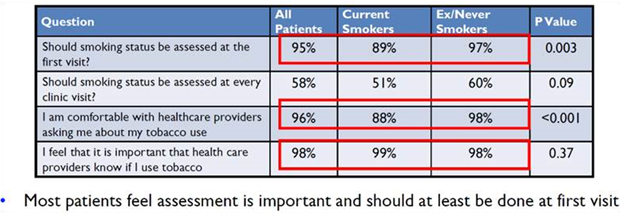About the program
 The BC Cancer Smoking Cessation Program is designed to screen all patients for current smoking, give advice on the benefits of quitting and automatically refer all current smokers for cessation support to QuitNow, BC’s provincial cessation program.
The BC Cancer Smoking Cessation Program is designed to screen all patients for current smoking, give advice on the benefits of quitting and automatically refer all current smokers for cessation support to QuitNow, BC’s provincial cessation program.
This program is funded by the Canadian Partnership against Cancer in a national effort to create smoking cessation programs at all cancer centres across Canada by 2020.
Smoking Cessation is considered first line therapy for cancer patients. There is strong evidence to show that cancer patients who quit smoking:
- Have a better chance of successful treatment
- Improve their health and their body’s response to treatment
- Have fewer serious side effects
- Have faster recovery from treatment
- Have a lower risk of their cancer coming back or getting another form of cancer
- Have a lower risk of infection
- Find it easier to breathe
- Have more energy
- Experience better quality of life and outcomes, even when living with an incurable cancer
Studies show that patients want to be asked and advised on the benefits of smoking cessation at the first visit so that they can make informed decisions about their treatment.

Eng et al. Perceptions of Continued Smoking and Smoking Cessation Among Patients with Cancer. DOI: 10.1200/JOP.17.00029 Journal of Oncology Practice 14, no. 5 (May 01, 2018) e269-e279.
- Stopping Smoking at the time of a cancer diagnosis can reduce mortality by 30-40%. (USDHHS Surgeon General’s Report, 2014)

